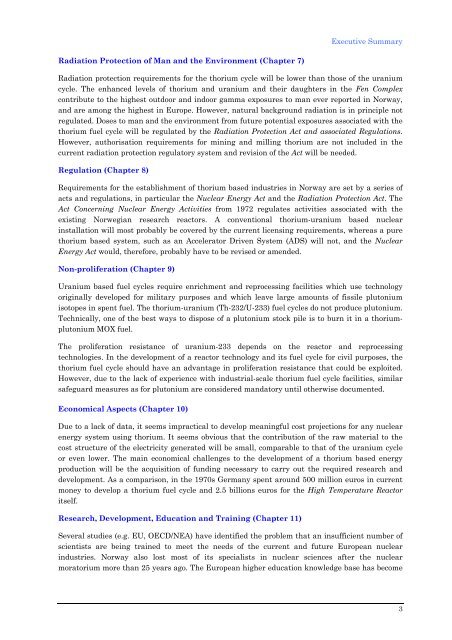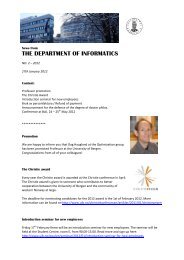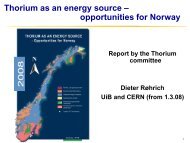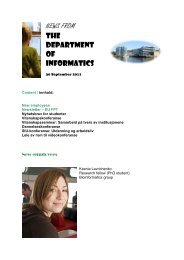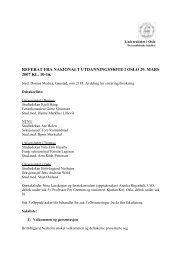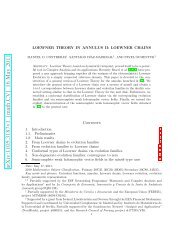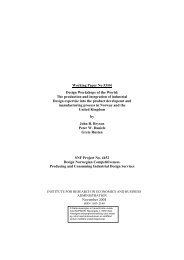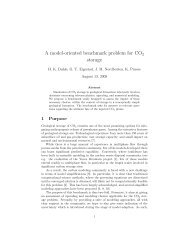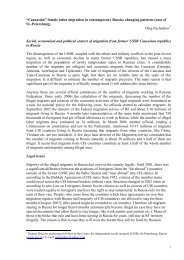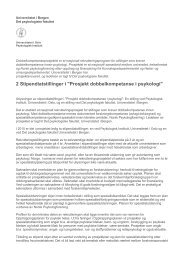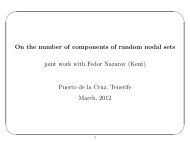THORIUM AS AN ENERGY SOURCE - Opportunities for Norway ...
THORIUM AS AN ENERGY SOURCE - Opportunities for Norway ...
THORIUM AS AN ENERGY SOURCE - Opportunities for Norway ...
Create successful ePaper yourself
Turn your PDF publications into a flip-book with our unique Google optimized e-Paper software.
Radiation Protection of Man and the Environment (Chapter 7)<br />
Executive Summary<br />
Radiation protection requirements <strong>for</strong> the thorium cycle will be lower than those of the uranium<br />
cycle. The enhanced levels of thorium and uranium and their daughters in the Fen Complex<br />
contribute to the highest outdoor and indoor gamma exposures to man ever reported in <strong>Norway</strong>,<br />
and are among the highest in Europe. However, natural background radiation is in principle not<br />
regulated. Doses to man and the environment from future potential exposures associated with the<br />
thorium fuel cycle will be regulated by the Radiation Protection Act and associated Regulations.<br />
However, authorisation requirements <strong>for</strong> mining and milling thorium are not included in the<br />
current radiation protection regulatory system and revision of the Act will be needed.<br />
Regulation (Chapter 8)<br />
Requirements <strong>for</strong> the establishment of thorium based industries in <strong>Norway</strong> are set by a series of<br />
acts and regulations, in particular the Nuclear Energy Act and the Radiation Protection Act. The<br />
Act Concerning Nuclear Energy Activities from 1972 regulates activities associated with the<br />
existing Norwegian research reactors. A conventional thorium-uranium based nuclear<br />
installation will most probably be covered by the current licensing requirements, whereas a pure<br />
thorium based system, such as an Accelerator Driven System (ADS) will not, and the Nuclear<br />
Energy Act would, there<strong>for</strong>e, probably have to be revised or amended.<br />
Non-proliferation (Chapter 9)<br />
Uranium based fuel cycles require enrichment and reprocessing facilities which use technology<br />
originally developed <strong>for</strong> military purposes and which leave large amounts of fissile plutonium<br />
isotopes in spent fuel. The thorium-uranium (Th-232/U-233) fuel cycles do not produce plutonium.<br />
Technically, one of the best ways to dispose of a plutonium stock pile is to burn it in a thoriumplutonium<br />
MOX fuel.<br />
The proliferation resistance of uranium-233 depends on the reactor and reprocessing<br />
technologies. In the development of a reactor technology and its fuel cycle <strong>for</strong> civil purposes, the<br />
thorium fuel cycle should have an advantage in proliferation resistance that could be exploited.<br />
However, due to the lack of experience with industrial-scale thorium fuel cycle facilities, similar<br />
safeguard measures as <strong>for</strong> plutonium are considered mandatory until otherwise documented.<br />
Economical Aspects (Chapter 10)<br />
Due to a lack of data, it seems impractical to develop meaningful cost projections <strong>for</strong> any nuclear<br />
energy system using thorium. It seems obvious that the contribution of the raw material to the<br />
cost structure of the electricity generated will be small, comparable to that of the uranium cycle<br />
or even lower. The main economical challenges to the development of a thorium based energy<br />
production will be the acquisition of funding necessary to carry out the required research and<br />
development. As a comparison, in the 1970s Germany spent around 500 million euros in current<br />
money to develop a thorium fuel cycle and 2.5 billions euros <strong>for</strong> the High Temperature Reactor<br />
itself.<br />
Research, Development, Education and Training (Chapter 11)<br />
Several studies (e.g. EU, OECD/NEA) have identified the problem that an insufficient number of<br />
scientists are being trained to meet the needs of the current and future European nuclear<br />
industries. <strong>Norway</strong> also lost most of its specialists in nuclear sciences after the nuclear<br />
moratorium more than 25 years ago. The European higher education knowledge base has become<br />
3


